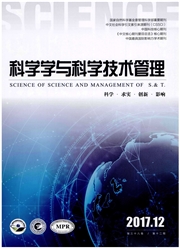

 中文摘要:
中文摘要:
构建了企业间信任和学习对买卖双方创新绩效影响的理论模型,并将联合解决问题作为中介机制,来探索知识的传递和关系的紧密如何影响企业间的互动行为,以及这些因素对双方创新绩效的影响。通过对194家企业的实证研究,发现企业间信任和学习有利于促进企业间的联合解决问题行为,进而进一步提升企业的创新绩效,联合解决问题在此过程中扮演着部分中介的角色。并且验证了信任与学习之间有互补作用,两者的交互项对创新绩效的影响被联合解决问题完全中介。
 英文摘要:
英文摘要:
To assess the effects of relational characteristics on innovation, this paper elaborates a theoretical framework that relates two aspects of tie characteristics-trust and learning-to the firm's subsequent innovation output. We argue joint problem solving arrangements play a prominent role in innovative capability acquisition by promoting the transfer of complex and difficult-to-codify knowledge and information sharing. Using survey data from a sample of 194 firms from mainland China, we demonstrate that trust and learning both have a positive impact on buyer innovativeness and seller innovativeness. We also find that trust and learning have a positive interaction effect. Furthermore, their effects and eomplementarities facilitate innovativeness because they facilitate joint problem solving at the firm level. Theoretical and managerial implications are discussed.
 同期刊论文项目
同期刊论文项目
 同项目期刊论文
同项目期刊论文
 Impact of Inventory Management Flexibility on Service Flexibility and Performance: Evidence from Mai
Impact of Inventory Management Flexibility on Service Flexibility and Performance: Evidence from Mai 期刊信息
期刊信息
